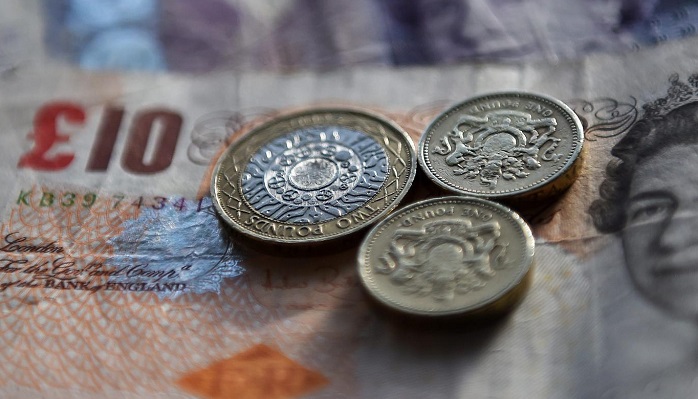The Bank kept rates at 0.25% this week, but hinted at a rise in the future.
Sterling rose more than 1% against the dollar to hit $1.3610.
That was its highest level since 24 June, the day after the Brexit vote.
The pound also gained more than 1% against the euro to rise above 1.13 euros.
Analysts have suggested the Bank could now lift interest rates back to 0.5%, the level they were before the EU referendum, as soon as November.
Mr Vlieghe, a member of the Bank's interest rate-setting committee, said in a speech on Friday: "Until recently, I thought the appropriate response of monetary policy was to be patient, given modest growth and subdued underlying inflationary pressure.
"But the evolution of the data is increasingly suggesting that we are approaching the moment when Bank Rate may need to rise."
Mr Vlieghe, who was the first Bank member to vote for a rate cut after the Brexit vote, said there was now growing evidence the UK economy was picking up.
'Concerted effort'
He pointed to unemployment falling to record lows, as well as signs that households are spending more and that wages are rising in the private sector.
"If these data trends of reducing slack, rising pay pressure, strengthening household spending and robust global growth continue, the appropriate time for a rise in Bank Rate might be as early as in the coming months," Mr Vlieghe said.
Markets which track investors' expectations for the Bank rate now give a 63% likelihood of a rise in November, the highest since the Brexit vote. At the start of the week the futures markets gave only a 20% chance.
The return on government bonds, often influenced by interest rate expectations, also hit 15-month highs on Friday.
The yield on five-year UK bonds rose 7 basis points to hit 0.772%, the highest since 23 June, 2016, the day Britain voted to leave the European Union.
Howard Archer, chief economic adviser to the EY Item Club, said: "Vlieghe's comments will support belief that the Bank of England could well raise interest rates before the end of 2017 with a move as soon as November very much in play."
Mr Archer cautioned that the Bank of England had "talked up the likelihood of an interest rate hike then failed to follow through" in the past.
"But there does seem to be a more concerted effort this time around and more unanimity within the Monetary Policy Committee of the case for a hike," he said.
The Bank said on Thursday that higher inflation and a pick up in growth could lead to a rate rise soon.
Growing speculation of a rate rise lifts the pound against other currencies because higher interest rates would make sterling more attractive to investors.
The Bank dropped heavy hints in 2014, and again last year before the EU referendum, that it could raise rates, only to later change course.
More about: #pound
















































